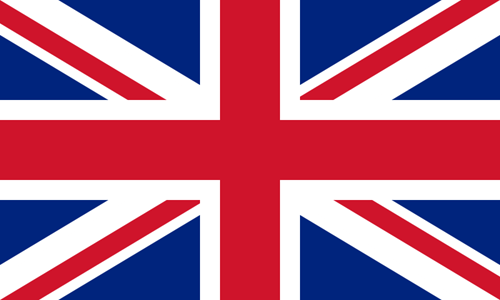The International Olympic Committe (IOC) is pressuring the United Kingdom (UK) to criminalize the personal use of anabolic steroids prior to the 2012 London Olympics. The mere possession of anabolic steroids and/or the importation of steroids for personal use is not an offense under UK law. Consequently, athletes (and bodybuilders) in the United Kingdom can technically use anabolic steroids and performance enhancing drugs (PEDs) without violating UK law. But this may soon change in the next few years if the IOC has their way (“IOC pressure Great Britain to change doping laws ahead of London Olympics 2012,” November 8).
The IOC are growing increasingly frustrated at Britain’s refusal to introduce legislation to outlaw the possession, supply and distribution of performance-enhancing drugs.
Their stance leaves them out of step with other European countries such as Sweden, France, Italy, Greece and Germany where anti-doping laws mean athletes and their suppliers can go to jail.
Great Britain’s refusal to blindly follow the trend towards the internationalization of steroid law taking hold in the rest of the European Union presents a significant threat to the moral authority of the IOC. The IOC has promoted the World Anti-Doping Agency (WADA) code as the guide for certain moral offenses that should be criminalized.
The IOC are considering making it a condition of bidding for future Olympic Games that candidate countries have anti-doping laws. In the meantime, just as the Chinese authorities were persuaded to introduce new legislation in the run-up to this summer’s Games, Britain will be under pressure to fall into line.
Ljungqvist, who is also a board member of the World Anti-Doping Agency, said: “I think legislation is very important that criminalises certain offences as detailed in the WADA code because it allows public authorities to intervene where we cannot.
The big question is whether or not the United Kingdom will cave in to pressure by the IOC and the United States to adopt stricter (and even draconian) laws against mere personal use of steroids?
The United Kingdom refused to cooperate with the U.S. Drug Enforcement Agency during Operation Raw Deal in 2007. Rusty Payne, a DEA spokesperson, complained loudly about UK law enforcement’s refusal to take part in the international series of steroid busts citing the UK’s weak steroid laws (“British urged to do more in fight against steroids after US hails anti-doping sting,” November 30, 2007).
The DEA told The Times that Raw Deal was possible because of the co-operation from police from a long list of countries, many European, and also including Mexico, China, Colombia, Peru, Israel and Thailand, but that the one country that resisted involvement was the United Kingdom.
UK law enforcement was not involved in Raw Deal, much to our disappointment, Rusty Payne, the DEA spokesperson, said. He also said there was evidence to suggest some of the trafficking had come through the UK.
The DEA spokesperson predicted that the United Kingdom’s “weak” steroid laws against personal possession would be an increasingly problematic issue as the 2012 London Olympics approached.
UK law enforcement had the opportunity, he said. When large international sporting events are taking place in a country in the next few years, then it surprises me that they are not interested now. We’ve done good work with the UK in other areas of drugs, but not with steroids.
This revelation provides further condemning evidence of the esteem with which some of the international sports community view Britain’s approach to doping. Senior figures from the World Anti-Doping Agency (Wada) raised fears in The Times about the ability of the 2012 Olympic hosts to fight doping when, unlike in many countries, possession of steroids is not a crime.
The steroid laws are very good here in the US, Payne said. But from our standpoint, the laws in the UK are quite weak. There are many in the DEA here who think this is a problem. Maybe there isn’t enough teeth in your law. Weak drugs laws basically say: this isn’t a priority. In the US, steroids are only permissible under doctor’s prescription. Otherwise it’s a crime to possess, distribute or manufacture.
The IOC has a clearly stated political agenda to influence host countries to enact anti-doping legislation criminalizing mere steroid use and possession. The IOC is openly lobbying for anti-doping laws shift some of the cost of doping enforcement to host countries’ government and sanction search and seizure against individuals suspected of doping.
The IOC have been convinced of the importance of criminal legislation after the events of the 2006 Winter Olympics in Turin.
It was only because of Italy’s tough anti-doping laws that they were able to expose blood-doping in the Austrian cross-country skiing team after police raided the athletes’ accommodation and seized haematological equipment and banned substances.
But should it be the government’s role to criminalize the violation of rules in a private sporting event? Should the government assume the role of moral police against “cheating” in sports? Why don’t we just criminalize any and all violations of the rules of games? If someone makes a prohibited move in checkers, let’s just throw them in jail!
About the author
Millard writes about anabolic steroids and performance enhancing drugs and their use and impact in sport and society. He discusses the medical and non-medical uses of anabolic-androgenic steroids while advocating a harm reduction approach to steroid education.


Leave a Reply
You must be logged in to post a comment.